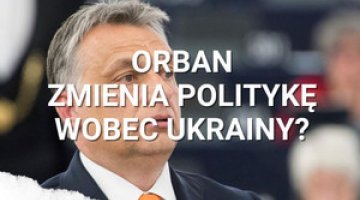The demise of the West and the dawn of the Asian Era: Orbán’s vision of the world

On 27 July 2024, Hungarian Prime Minister Viktor Orbán delivered his annual keynote speech in Băile Tușnad, Transylvania, Romania, which was almost entirely focussed on global issues. Orbán emphasised that Europe needs to emancipate itself from US influence, shift away from supporting Kyiv, and pursue an agreement with Moscow. He also criticised Poland’s pro-American policy aimed at weakening Russia, which he described as wrong and “doomed to fail”. Furthermore, he underscored the necessity of acknowledging the rise of Asian powers, viewing this as an opportunity, particularly with regard to cooperation with China.
In his speech, Orbán provided a comprehensive summary of his view of the international situation and outlined the direction for Hungary’s foreign policy. The keynote demonstrates that he will continue distancing himself from the mainstream policies of the EU and NATO, suggesting that Hungary will increasingly act in ways contrary to the strategic interests of the West. As a result, Hungary is likely to become increasingly dependent on countries that challenge the current international order and actively seek to undermine the West.
Defeatist stance on the war
Orbán is highly sceptical about the prospects of Western aid for Kyiv, as he is convinced that the US will withdraw its support for Ukraine and that Europe will neither be able to continue assisting Ukraine independently nor admit it into the EU and NATO. However, Orbán has altered his stance on Ukraine’s defensive capabilities, possibly influenced by his visit to Kyiv in early July this year, which was his first visit to Ukraine since the Russian invasion. In his speeches after 2022 and until recently, he portrayed Ukraine as a failed state, incapable of defending itself.[1] In contrast, he now describes it as a strong nation successfully resisting the aggressor and fulfilling its mission to defend Europe. Faced with both sides’ strong determination to continue the fight and the consequent impossibility of resolving the war on the battlefield, Orbán advocates for an immediate and unconditional peace agreement. In his view, Ukraine will have to revert to the role of a “buffer state”, and “in the best-case scenario”, one protected by security guarantees provided by Washington and Moscow.
At the same time, he uncritically repeats key points of the Russian narrative, including the claim that Russia was allegedly provoked into invading Ukraine by NATO and that the conflict is a proxy war between Russia and the US, effectively stripping Ukraine of its agency in the conflict. He speaks of Russia with respect, asserting that it has adapted to the war and emphasising that it is not a “rigid neo-Stalinist autocracy” but instead “demonstrates technical and economic resilience, and perhaps even social resilience”. In doing so, he overlooks the significant economic challenges facing Russia, including financial, technological, and demographic issues. Orbán also exaggerates international support for Moscow, claiming that the pro-Kremlin stances adopted by China, North Korea, and Iran, as well as alleged support from India and Arab countries, all prove that the entire world, apart from the West, is siding with Russia.
Europe without the United States
Orbán is particularly critical of European politicians, accusing them of subordinating Europe’s interests to American ones. He contends that the EU is pursuing a “pro-war” rather than a “pro-peace” course, implying that the war continues not because of Russian aggression but due to ongoing Western support for Ukraine. He criticises the sanctions, claiming they allegedly harm “fundamental European interests” and adversely affect the competitiveness of the European economy more than that of Russia, while disregarding the costs Russia is bearing. He also justifies the Kremlin’s policy, describing it as entirely rational in contrast to the European approach, which he views as incomprehensible and unpredictable.
Orbán points to Germany’s failure to respond to what he calls the “terrorist attack” on Nord Stream, allegedly “carried out under US leadership”, as the prime example of the “collapse of European policy”. In doing so, Orbán not only echoes Russian propaganda but also spreads the false claim that EU countries have not investigated the explosion (in reality, Sweden and Denmark have concluded their investigations, and Germany’s is ongoing). He criticises Germany for deciding, albeit initially reluctantly, to cease importing Russian resources and to support Ukraine militarily. He interprets Berlin’s policy shift as a decision made under external influence, suggesting it is subordinated to Washington and the pressure of “liberal circles”. This is likely an expression of Orbán’s frustration that Hungary, the only EU country to have fully maintained cooperation with Russia after 2022, can no longer justify its stance by aligning with the actions of the EU’s largest member state.
Poland as a symbol of policies gone wrong
Orbán claims that European policy is in decline because the Paris-Berlin axis has been replaced after 2022, by a new “power centre”: the “London-Warsaw-Kyiv-Baltic and Scandinavian states axis”. In his opinion, this shift represents the implementation of “Poland’s old plan” to strengthen the US presence in Europe, weaken Russia, and surpass Germany economically. For Orbán, Poland symbolises the “pro-war” course he criticises. In this way, he indirectly references Russian propaganda, where Poland is branded as a Russophobic nation and a “Trojan horse” for the US in Europe. Although he acknowledged Poland’s military strength and economic potential, he concluded that the “Polish experiment” would ultimately fail.
Orbán also blamed Warsaw for the weakening of cooperation within the Visegrád Group (V4). He argued that the acceptance of a strong Germany and Russia, as well as the Franco-German axis, was the foundation of cooperation in this format. However, this vision of the V4 does not align with the group’s manifesto. Since its establishment in 1991, the Visegrád Group has consistently aligned with EU and NATO policies, with its overriding goal being to strengthen the region’s voice within these organisations. The reason cooperation within the V4 has weakened after 2022 was not Poland’s withdrawal but rather Hungary’s pro-Russian policies. Orbán also accused his “Polish brothers” of pursuing “the most hypocritical policy in Europe”, claiming that Warsaw criticises Budapest for economic cooperation with Moscow while at the same time buying oil from Russia. In reality, Poland no longer imports oil (or gas) from Russia, while Hungary remains 70–80% dependent on Russian supplies, a dependence it has not reduced since 2022 despite having other options.
In his speech, Orbán frequently spoke about the war on behalf of Central Europe, despite his stance being quite isolated in the region. Poland, the Baltic states, the Czech Republic, and Romania all disagree with Hungary’s position, and political elites in Bulgaria and Slovakia are divided over this issue. None of these countries have adopted an approach as favourable to Russia, hostile to Ukraine, or pro-Chinese as Hungary. Orbán’s narrative of presenting Central Europe in stark opposition to the western part of the continent, symbolised by Brussels according to him, also fails to gain traction. While individual initiatives from EU institutions or the largest member states sometimes meet with resistance in the region, it does not share Budapest’s confrontational stance.
Inevitable Asian dominance
Orbán also addressed other issues beyond the Ukrainian-Russian war and European policy during his speech. He foresees an inevitable global shift, with Asia becoming the new centre of the world. He declared that this would be the largest revolution in 500 years and viewed it as an opportunity rather than a threat for Hungary. In his opinion, the West does not need to consolidate in the face of openly hostile moves by revisionist powers. Instead, he intends to pursue a “nationally oriented policy”, which he defines as remaining within the EU while simultaneously forging the closest possible ties with China and other Asian countries. He believes that Beijing’s offer is more appealing than that of the US and that Hungary and China can mutually benefit from the modernisation of both countries. Although he acknowledges the disparity in their potentials, he does not specify what measures could be taken to mitigate the threats that China may pose to Hungary’s sovereignty as a result of such cooperation.
In this way, the Hungarian Prime Minister elaborated on his ideas about the demise of the West, which he had been formulating for at least a decade. As early as 2014, he spoke in Băile Tușnad about the crisis of the Western world and pointed to countries like China, Russia, and Turkey as models to follow. At that time, he emphasised that future success would belong to countries that are not liberal democracies or democracies at all.[2] In his speech this year, Orbán went one step further in both his diagnosis and the implications for Hungarian policy. He highlighted that Hungary would not participate in any war against the East or join any anti-Eastern trade or technological blocs. However, he did not clarify how his country, as a member of the EU and NATO, would respond in the event of a military conflict between the Alliance and Russia or an economic war with China.
A message to ideological allies and the electorate at home
Orbán’s anti-American rhetoric, calls for resuming cooperation with Moscow, and emphasis on conservative themes are primarily addressed to the European far-right. He cited the joint criticism of the US intervention in Iraq by the presidents of France and Russia, along with the German chancellor, as a positive example of such cooperation. He also recalls the economic cooperation with Russia which was once beneficial for European countries and speaks favourably of the French concept of ‘strategic autonomy’. At the same time, he claims that transatlantic cooperation is imposed by the “liberal oligarchy in Brussels”.
However, since Russia invaded Ukraine, arguments for the need to reach a compromise with the Kremlin have gained little traction in mainstream European politics. A clear example of this was the nearly unanimous negative reaction from EU member states to Orbán’s visit to Moscow at the beginning of Hungary’s presidency of the EU Council.[3] As a result, this message is primarily targeted at far-right parties, with which Fidesz has aligned as part of the Patriots for Europe alliance.[4] This focus likely explains why Orbán places such strong emphasis on anti-American rhetoric, which may resonate with radical groups in France and Germany.
The Hungarian Prime Minister primarily criticises the Democratic Party’s administration and places his hopes on Donald Trump’s victory, offering the Republican candidate unequivocal support. However, Orbán sees Trump more as a like-minded politician than as an ally in international politics. He praises Trump for pursuing a policy that prioritises national interest, likely hoping that the isolationist trend will strengthen in the United States and thus the American administration will become less disapproving of his government. Nonetheless, regardless of the election outcome, Hungary’s closer ties with China will remain a key problem in its bilateral relations with the US.[5]
Orbán also employs the narrative of significant global changes to deflect domestic criticism for making Hungary heavily dependent on Russia and China, as well as its marginalisation on the European political scene. The course set over a decade ago to strengthen ties with Moscow, and the failure to adjust it despite the growing threat to European security from Russia, is thus justified by Budapest as a historical necessity and a long-term strategy. By focusing on international issues, Orbán diverts attention from the political challenges (such as the emergence of his new rival, Péter Magyar),[6] and economic difficulties (including slow growth, a high deficit, and the suspension of EU funds) facing his government. This approach also seems to reflect his personal ambition, as after more than 14 uninterrupted years in office (18 years in total, including his first term), he appears more interested in international affairs than in domestic politics.
Conclusions
Orbán’s speech reveal his strong conviction in the inevitability of the political processes he predicts. He is certain that, in the short term, the US will withdraw from Europe and Ukraine will be defeated in the war with Russia, and that, in the longer term, Asia will become the dominant continent, and the West is destined to decline. He intends to maintain close cooperation with Moscow and strengthen ties with Beijing.
His strategy carries significant risks, as Hungary’s economy and security could be seriously jeopardised if the situation unfolds differently than he has predicted. This approach is also detrimental to the West, as Orbán’s actions align with the goals of the EU and NATO’s strategic rivals.
Even if Orbán’s forecasted and desired scenario materialises, it still presents considerable risks for Budapest. If Trump wins, Hungary may face American pressure to limit cooperation with China. Moreover, any weakening of the EU and NATO would strip Orbán of his greatest advantage: the ability to collaborate with China and Russia from the secure position of being a member of these organisations. This would also diminish Budapest’s appeal to Beijing and Moscow as a tool for undermining Western cohesion and as a foothold for the interests of both countries.
[1] A. Sadecki, K. Całus, Ł. Kobeszko, ‘Wystąpienie programowe Orbána w Siedmiogrodzie’, OSW, 2 August 2022, osw.waw.pl.
[2] A. Sadecki, ‘Orban's anti-liberal manifesto’, OSW, 6 August 2014, osw.waw.pl.
[3] I. Gizińska, A. Sadecki, ‘Orbán's self-proclaimed 'peace mission' at the beginning of Hungary's EU Council presidency’, OSW, 12 July 2024, osw.waw.pl.
[4] A. Sadecki, K. Dębiec, ‘Patriots for Europe: Orbán's attempt to unite the radical right’, OSW, 23 July 2024, osw.waw.pl.
[5] I. Gizińska, A. Sadecki, ‘Hungary's strained relations with the US: betting it all on Trump’, OSW Commentary, no. 554, 16 November 2023, osw.waw.pl.
[6] Eidem, ‘The 'Rise up, Hungarians' movement: a new challenge to Fidesz's domination’, OSW, 10 May 2024, osw.waw.pl.




